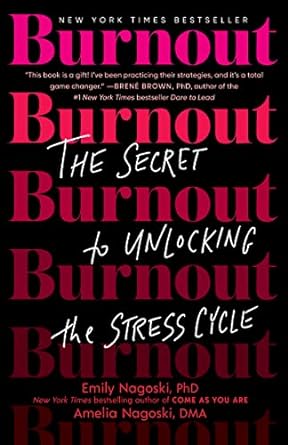More on this book
Community
Kindle Notes & Highlights
Read between
February 14 - February 27, 2024
Dealing with your stress is a separate process from dealing with the things that cause your stress. To deal with your stress, you have to complete the cycle.
Physical activity is the single most efficient strategy for completing the stress response cycle.
The research suggests a twenty-second hug can change your hormones, lower your blood pressure and heart rate, and improve mood, all of which are reflected in the post-hug increase in the social-bonding hormone oxytocin.
Wellness is not a state of being, but a state of action.
Affection—a six-second kiss, a twenty-second hug, six minutes of snuggling after sex, helpless laughter—are social strategies that complete the cycle, along with creative self-expression—writing, drawing, singing, whatever gives you a safe place to move through the emotional cycle of stress.
Do you suffer from Human Giver Syndrome? Symptoms include • believing you have a moral obligation—that is, you owe it to your partner, your family, the world, or even to yourself—to be pretty, happy, calm, generous, and attentive to the needs of others; • believing that any failure to be pretty, happy, calm, generous, and attentive makes you a failure as a person; • believing that your “failure” means you deserve punishment—even going so far as to beat yourself up; and • believing these are not symptoms, but normal and true ideas.
No individual can meet all the needs of the world. Humans are not built to do big things alone. We are built to do them together.
Rage gives you strength and energy and the urge to fight, and sharing that energy in the Bubble changes it from something potentially dangerous to something safe and potentially transformative.
Anything you wouldn’t do drunk—drive, lead a work meeting, raise a child—don’t try it if you’ve been awake for nineteen hours, slept only four hours the previous night, or slept fewer than six hours every night for two weeks.


